#fictional quotes
Text
“There's nothing in the world more powerful than a good story."
— Tyrion Lannister, Game of Thrones.
#we're all stories in the end#fictional quotes#quotes#tyrion lannister#game of thrones#got#others words#queue queue ca choo
9 notes
·
View notes
Text
“Love isn’t about being afraid that it will all be snatched away. Love’s about finding the one person who makes your heart complete, who makes you a better person than you ever dreamed you could be. It’s about looking in the eyes of your wife and knowing, all the way to your bones that she’s simply the best person you’ve ever known.” - Anthony Bridgerton (book) once said.
#anthony bridgerton#kate sheffield#kate sharma#love quotes#fictional quotes#romance quotes#bridgerton#bridgerton book series
8 notes
·
View notes
Text
“The most persistent and troublesome force the Church and faithful alike face is not werewolves, vampires, basilisks, or even demonic possessions but rather a demonic phenomenon aptly named Spawn for their ability to reproduce at an alarming rate. An infestation of the creatures can easily overwhelm and render large areas ‘dead zones’ if the initial signs of Spawn are not handled quickly and with aggression.
The exact origins of Spawn isn’t clear, although their supernatural properties are undeniable. Some theorize that they were born out of the sin and brokenness of our world and that their grotesque and unnatural appearance is a testament to their Satanic origins. Spawn tend to appear humanoid although there are reported cases of beast-like Spawn. However they may appear, their very existence is an insult to God’s creation and perfect design and they must be destroyed.
In experiments with live specimens, I have found that Spawn can be easily contained in an area via holy water, salt, fire, or consecrated objects. The creatures are impervious to injury and rapidly heal just as quickly as they had been wounded, however. Weakening the creatures with holy water before striking them down with a weapon that had been blessed is the only way to effectively exterminate these abominations and prevent them from reproducing.
It is my recommendation that any priest willing to take on Spawn mustn’t go alone. He risks certain death doing so."
-From St. Ignacio’s research notes, circa. 1658
#posting this because spawn make an appearance in the next two chapters im working on#st ignacio#societyofstignacio#priest oc#fictionalsaint#fictional quotes#fictional excerpt#catholic character#saint#quotes from ignacio#worldbuilding#lore#theorder
6 notes
·
View notes
Text
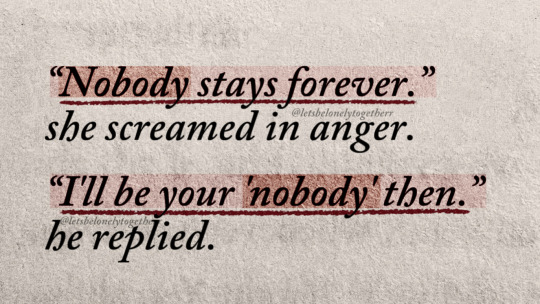
— Jay Vespertine; not from a book but from an actual conversation.
#annotated books#bookstagram#poetry books#fictional men#fiction#fan fiction#poetry lovers#aesthetic poetry#poetry#dark academic aesthetic#romantic academia#romantic#dark academia#literature#quotes#poem#light academia#romance#love quotes
16K notes
·
View notes
Text
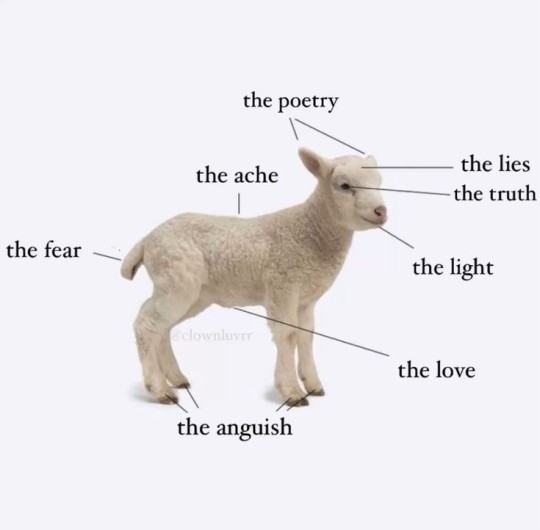
This is me btw
#beginner writer#literary fiction#poets corner#poetry blog#poems#story writing#writer#creative writing#author#writer problems#dark academia#poetic#prose#poet#poem#poetry#bookworm#book quotes#books#art#aesthetic#words#quotes#girlblogging#blog#artists on tumblr#writers block#writing#female hysteria#female poets
3K notes
·
View notes
Text
"There was an exchange on Twitter a while back where someone said, ‘What is artificial intelligence?' And someone else said, 'A poor choice of words in 1954'," he says. "And, you know, they’re right. I think that if we had chosen a different phrase for it, back in the '50s, we might have avoided a lot of the confusion that we're having now."
So if he had to invent a term, what would it be? His answer is instant: applied statistics. "It's genuinely amazing that...these sorts of things can be extracted from a statistical analysis of a large body of text," he says. But, in his view, that doesn't make the tools intelligent. Applied statistics is a far more precise descriptor, "but no one wants to use that term, because it's not as sexy".
'The machines we have now are not conscious', Lunch with the FT, Ted Chiang, by Madhumita Murgia, 3 June/4 June 2023
#quote#Ted Chiang#AI#artificial intelligence#technology#ChatGPT#Madhumita Murgia#intelligence#consciousness#sentience#scifi#science fiction#Chiang#statistics#applied statistics#terminology#language#digital#computers
12K notes
·
View notes
Text
"'I have led a toothless life,' he thought. 'A toothless life. I have never bitten into anything. I was waiting. I was reserving myself for later on--and I have just noticed that my teeth have gone. What's to be done?'"
-Jean-Paul Sartre, The Age of Reason (1945)
3K notes
·
View notes
Text
dick: what are you guys doing?
tim, frozen in surprise, as damian struggled against his bonds, apples scattered around them: uh... it's not what it looks like
steph, oblivious: i got it! he's 11 apples tall
jason, a little shit: damn, we were one off. i thought it'd be 10
#tim: only 11? even hello kitty is 5 apples tall and shes a fictional cat#jason: you're one to talk for being only 13 apples tall#damian: release me you imbeciles!#dc#dc comics#dc universe#dcu#batman#batfam#incorrect batfamily quotes#dick grayson#jason todd#tim drake#stephanie brown#damian wayne#nightwing#red hood#red robin#dc spoiler#robin#unidentified gothamite
2K notes
·
View notes
Text
I was always hungry for love. Just once, I wanted to know what it was like to get my fill of it -- to be fed so much love I couldn't take any more. Just once.
- Haruki Murakami, Norwegian Wood
#quotes#books#literature#lit#classics#academia#light academia#dark academia#chaotic academia#book#book quotes#quotation#Haruki Murakami#Murakami#Norwegian Wood#Fiction#Romance#Japanese Literature
2K notes
·
View notes
Text
the 141 and quotes that match them:

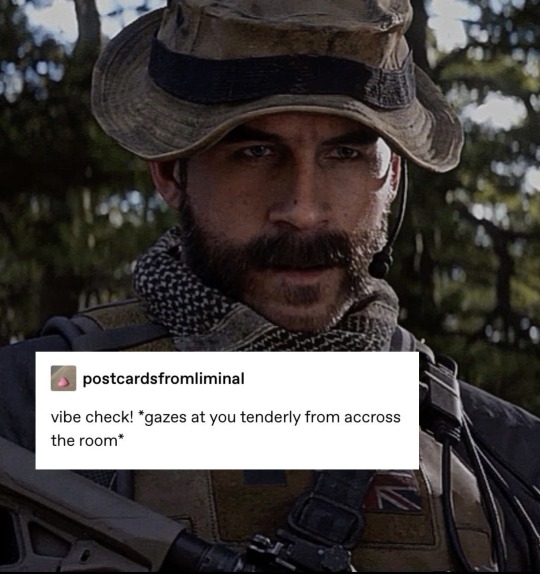
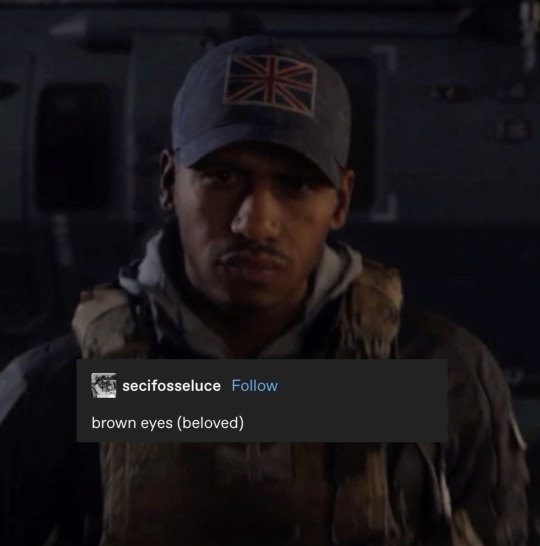
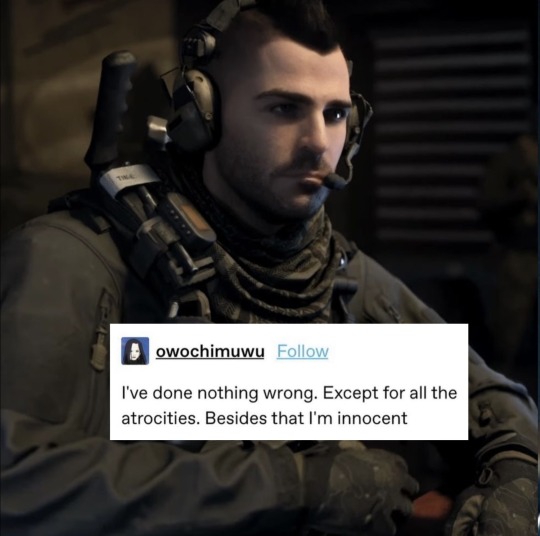
#call of duty#cod#simon riley#john price#john mactavish#kyle garrick#gaz cod#ghost cod#price cod#soap cod#call of duty meme#cod ghost#ghost call of duty#soap call of duty#price call of duty#gaz call of duty#simon ghost riley#fictional men#meme#cod meme#quotes#johnny mactavish#captain john price#captain price#ghost#cod mw2#cod mwii#tf 141#task force 141
1K notes
·
View notes
Photo

Isabel Allende, from The House of The Spirits
#so many sad little fictional men cross my mind....#this book is absolutely phenomenal btw#isabelle allende#typography#quotes#words#on love
8K notes
·
View notes
Quote
Imagine what it would look like if ChatGPT were a lossless algorithm. If that were the case, it would always answer questions by providing a verbatim quote from a relevant Web page. We would probably regard the software as only a slight improvement over a conventional search engine, and be less impressed by it. The fact that ChatGPT rephrases material from the Web instead of quoting it word for word makes it seem like a student expressing ideas in her own words, rather than simply regurgitating what she’s read; it creates the illusion that ChatGPT understands the material. In human students, rote memorization isn’t an indicator of genuine learning, so ChatGPT’s inability to produce exact quotes from Web pages is precisely what makes us think that it has learned something. When we’re dealing with sequences of words, lossy compression looks smarter than lossless compression.
Ted Chiang’s essay about ChatGPT is required reading
10K notes
·
View notes
Text
“Fairy tale does not deny the existence of sorrow and failure: the possibility of these is necessary to the joy of deliverance. It denies (in the face of much evidence, if you will) universal final defeat…giving a fleeting glimpse of Joy; Joy beyond the walls of the world, poignant as grief.”
― J.R.R. Tolkien.
#booklr#books#bookblr#fiction#book#quotes#book quotes#quotations#quote#book quote#j rr tolkien#j r r tolkien#reading#jrr tolkien#tolkien#tolkein#lord of the rings#middle earth#noteworthy
1K notes
·
View notes
Quote
I don't miss him anymore. Most of the time, anyway. I want to. I wish I could but unfortunately, it's true: time does heal. It will do so whether you like it or not, and there's nothing anyone can do about it. If you're not careful, time will take away everything that ever hurt you, everything you have ever lost, and replace it with knowledge. Time is a machine: it will convert your pain into experience. Raw data will be compiled, will be translated into a more comprehensible language. The individual events of your life will be transmuted into another substance called memory and in the mechanism something will be lost and you will never be able to reverse it, you will never again have the original moment back in its uncategorized, preprocessed state. It will force you to move on and you will not have a choice in the matter.
Charles Yu, How to Live Safely in a Science Fictional Universe
1K notes
·
View notes
Text
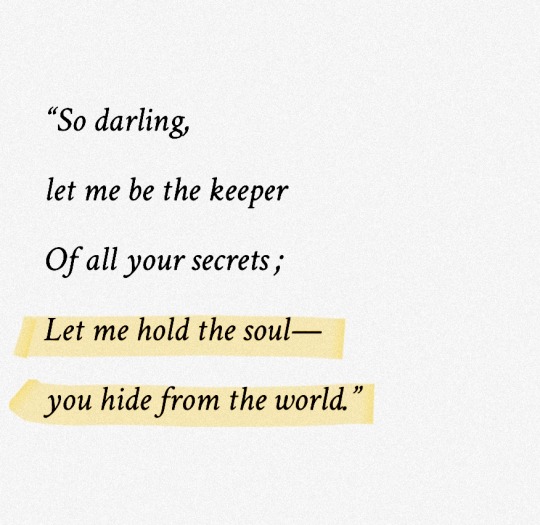
15022024 // excerpts from poems I'll never publish
#Spilled ink#spilled words#Love#Poetry#poems on tumblr#Quotes#web weaving#spilled thoughts#spilled poetry#writing#fiction#Fanfic#Drabbles
1K notes
·
View notes
Text
"I think Homer outwits most writers who have written on the War [fantasy archetype], by not taking sides.
The Trojan war is not and you cannot make it be the War of Good vs. Evil. It’s just a war, a wasteful, useless, needless, stupid, protracted, cruel mess full of individual acts of courage, cowardice, nobility, betrayal, limb-hacking-off, and disembowelment. Homer was a Greek and might have been partial to the Greek side, but he had a sense of justice or balance that seems characteristically Greek — maybe his people learned a good deal of it from him? His impartiality is far from dispassionate; the story is a torrent of passionate actions, generous, despicable, magnificent, trivial. But it is unprejudiced. It isn’t Satan vs. Angels. It isn’t Holy Warriors vs. Infidels. It isn’t hobbits vs. orcs. It’s just people vs. people.
Of course you can take sides, and almost everybody does. I try not to, but it’s no use; I just like the Trojans better than the Greeks. But Homer truly doesn’t take sides, and so he permits the story to be tragic. By tragedy, mind and soul are grieved, enlarged, and exalted.
Whether war itself can rise to tragedy, can enlarge and exalt the soul, I leave to those who have been more immediately part of a war than I have. I think some believe that it can, and might say that the opportunity for heroism and tragedy justifies war. I don’t know; all I know is what a poem about a war can do. In any case, war is something human beings do and show no signs of stopping doing, and so it may be less important to condemn it or to justify it than to be able to perceive it as tragic.
But once you take sides, you have lost that ability.
Is it our dominant religion that makes us want war to be between the good guys and the bad guys?
In the War of Good vs. Evil there can be divine or supernal justice but not human tragedy. It is by definition, technically, comic (as in The Divine Comedy): the good guys win. It has a happy ending. If the bad guys beat the good guys, unhappy ending, that’s mere reversal, flip side of the same coin. The author is not impartial. Dystopia is not tragedy.
Milton, a Christian, had to take sides, and couldn’t avoid comedy. He could approach tragedy only by making Evil, in the person of Lucifer, grand, heroic, and even sympathetic — which is faking it. He faked it very well.
Maybe it’s not only Christian habits of thought but the difficulty we all have in growing up that makes us insist justice must favor the good.
After all, 'Let the best man win' doesn’t mean the good man will win. It means, 'This will be a fair fight, no prejudice, no interference — so the best fighter will win it.' If the treacherous bully fairly defeats the nice guy, the treacherous bully is declared champion. This is justice. But it’s the kind of justice that children can’t bear. They rage against it. It’s not fair!
But if children never learn to bear it, they can’t go on to learn that a victory or a defeat in battle, or in any competition other than a purely moral one (whatever that might be), has nothing to do with who is morally better.
Might does not make right — right?
Therefore right does not make might. Right?
But we want it to. 'My strength is as the strength of ten because my heart is pure.'
If we insist that in the real world the ultimate victor must be the good guy, we’ve sacrificed right to might. (That’s what History does after most wars, when it applauds the victors for their superior virtue as well as their superior firepower.) If we falsify the terms of the competition, handicapping it, so that the good guys may lose the battle but always win the war, we’ve left the real world, we’re in fantasy land — wishful thinking country.
Homer didn’t do wishful thinking.
Homer’s Achilles is a disobedient officer, a sulky, self-pitying teenager who gets his nose out of joint and won’t fight for his own side. A sign that Achilles might grow up someday, if given time, is his love for his friend Patroclus. But his big snit is over a girl he was given to rape but has to give back to his superior officer, which to me rather dims the love story. To me Achilles is not a good guy. But he is a good warrior, a great fighter — even better than the Trojan prime warrior, Hector. Hector is a good guy on any terms — kind husband, kind father, responsible on all counts — a mensch. But right does not make might. Achilles kills him.
The famous Helen plays a quite small part in The Iliad. Because I know that she’ll come through the whole war with not a hair in her blond blow-dry out of place, I see her as opportunistic, immoral, emotionally about as deep as a cookie sheet. But if I believed that the good guys win, that the reward goes to the virtuous, I’d have to see her as an innocent beauty wronged by Fate and saved by the Greeks.
And people do see her that way. Homer lets us each make our own Helen; and so she is immortal.
I don’t know if such nobility of mind (in the sense of the impartial 'noble' gases) is possible to a modern writer of fantasy. Since we have worked so hard to separate History from Fiction, our fantasies are dire warnings, or mere nightmares, or else they are wish fulfillments."
- Ursula K. Le Guin, from No Time to Spare, 2013.
#ursula k. le guin#homer#quote#quotations#the iliad#trojan war#storytelling#fantasy#fiction writing#war#conflict#tragedy#john milton#paradise lost#greek mythology
2K notes
·
View notes